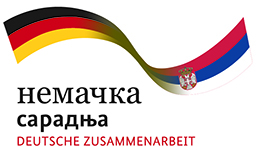
ASB
ASB started working in Serbia in 1999 with the establishment of an office in Belgrade. In a period of 23 years, ASB in Serbia has implemented projects worth over 40 million euros with financial resources. Through more than 50 projects, around 70,000 people were helped in 80 municipalities in Serbia. ASB in Serbia focused on providing permanent housing solutions for the local vulnerable population and refugees, both in their integration within the territory of the Republic of Serbia, and in their return to their places of origin. Up to this point, through economic sustainability measures, ASB in Serbia has reconstructed or built more than 1,200 houses, and helped more than 600 families through business start-up programs.
ASB is also committed to connecting and building the capacity of the public, private and civil sectors with the aim of strengthening structures that support the recovery and development of post-conflict countries in the region. As a positive consequence of its long-term presence in the region, ASB has developed close and effective cooperation, coordination and open dialogue with national, regional and local authorities in the target countries, thus creating solid foundations for future formal partnerships with local self-governments with the aim of joint representation in the process attracting donor investments in the region. Moreover, due to the nature of its work, ASB has created a wide network of local partners, civil society organizations as a condition for qualitative partnership in discovering the real needs and limitations of the target groups of beneficiaries.
Being well rooted in the Balkan countries and working closely with their decision-makers and citizens from the public and civil sectors, ASB has become an indispensable actor in the region when it comes to socio-economic assistance provided to the vulnerable. Such a scenario continuously obliges ASB Balkan offices to promote result-oriented, innovative ideas and initiatives and contribute to the winds of positive change in these countries in transition to the EU.
IDC – INITIATIVE FOR DEVELOPMENT AND COOPERATION
The Association of Citizens Initiative for Development and Cooperation (IDC) is a non-profit organization dedicated to the social and economic inclusion of vulnerable groups and the protection of their human rights.
IDC operates throughout Serbia and has implemented projects in more than 50 local communities. Projects currently being implemented in the field of reintegration of returnees, social housing and integration of vulnerable groups are implemented in more than 10 municipalities in Serbia. IDC has the experience of independently implementing budget projects up to 1.2 million euros. In 2020 and 2021, IDC successfully completed 17 projects as lead applicant/partner. IDC is the founder of three social enterprises – EkoBaG, Zadruga (AgroIRIS) and FrigoIRIS.
IDC has rich experience in programs of economic empowerment, adequate housing, development of social services in the community, creation of a favorable environment for the development of social entrepreneurship and application of this model, organization of seminars and trainings, implementation of volunteer programs, provision of direct humanitarian aid, provision of free legal aid and others areas. The IDC team has vast experience in project management, and the development and implementation of various projects.

PIROT DISTRICT
The Pirot district has a little more than 117,000 inhabitants, and the district headquarters is in the city of Pirot.
The support intended by this project is aimed at strengthening the economic, psychosocial and institutional capacities in the region through the organization of workshops for vulnerable categories included in the project, as well as business training, VAT and the distribution of grants for starting one’s own business. In good cooperation with the municipality of Pirot and municipality of Dimitrovgrad the project will also aim to strengthen institutional capacities by opening the Good neighborhood club, which will be a place of education and exchange of experiences, and by organizing training for the provision of social services, mentoring and visits to exchange experiences with other municipalities involved in the project.

RASINA DISTRICT
With its headquarters in the city of Kruševac, the Rasin district has a little more than 240,000 inhabitants. With good cooperation with the city of Kruševac, the project “Reintegration II – further support for the sustainable (re)integration of returnees in Serbia” will be aimed at similar support measures as in the Pirot District. As part of the “Inclusion of Roma and other marginalized groups in Serbia” program implemented by GIZ in Kruševac, there is currently a public call for project beneficiaries who will be trained to work as drivers. The IDC will monitor the implementation of these activities in order to gather good experiences and lessons learned.
In the preparatory phase of the project, the current activities and support measures on the ground were well analyzed so that there would be no overlapping of activities in the implementation of the project.

RAŠKA DISTRICT
The organizations ASB and IDC have a long-term and successful cooperation with the Raška district, within which the previous project – “Reintegration – support for the sustainable (re)integration of returnees in Serbia” was implemented during 2020 and 2021. The cities affected by the previous project were Novi Pazar, Sjenica and Tutin.
Raški district has a little more than 300,000 inhabitants, with headquarters in the city of Novi Pazar where, in addition to Sjenica and Tutin, the Good Neighbor Club Novi Pazar was opened during the previous project. The support intended for the Raška region through this project also refers to support through three measures – economic, psychosocial and institutional support.



